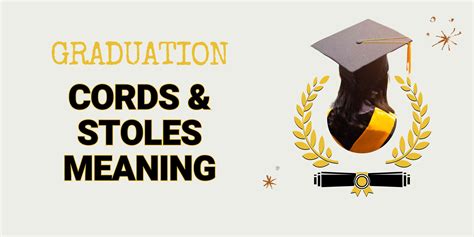Introduction

Cords are a prestigious honor bestowed upon high school students who have excelled in academics, leadership, and service. Earning a cord can be a testament to your dedication, hard work, and commitment to your community. If you aspire to receive a cord, it is essential to understand the requirements and criteria associated with each type. This article will provide a comprehensive guide on how to get cords in high school, covering various academic, leadership, and service-oriented cords.
1. Honor Cords
Honor cords recognize students who have maintained an exceptional academic record throughout their high school career. The requirements vary depending on the school, but generally students must have a GPA of 3.5 or higher.
2. Honor Society Cords
Honor societies such as the National Honor Society (NHS) and the National Spanish Honor Society (NSHS) offer cords to members who have demonstrated academic excellence and leadership. Membership is typically based on GPA, class rank, and extracurricular activities.
3. Subject-Specific Cords
Many schools award cords to students who have excelled in specific academic subjects. For example, the National Latin Honor Society (NLHS) recognizes students who have achieved academic excellence in Latin studies.
1. Student Government Cords
Student government cords are awarded to students who have served in leadership positions within their school’s student government. These positions may include president, vice president, or class representative.
2. Club and Organization Cords
Many clubs and organizations offer cords to members who have held leadership roles or made significant contributions to the group. Examples include the Science Olympiad Club, the Drama Club, and the Student Newspaper.
3. Athletic Captain Cords
Athletic leadership cords are awarded to students who have served as captains or other leadership positions on their school’s athletic teams.
1. Community Service Cords
Community service cords recognize students who have dedicated a significant amount of time to volunteering in their community. The hours of service required vary depending on the school.
2. Volunteer Cords
Volunteer cords are similar to community service cords, but they specifically recognize students who have volunteered with a specific organization or group.
3. Red Cross Cords
Red Cross cords are awarded to students who have completed a certain number of hours of service with the American Red Cross.
1. Maintain a High GPA
For academic honor cords, it is crucial to maintain a high GPA from the beginning of high school. Consider taking challenging courses and seeking extra help if needed.
2. Join Honor Societies
Inquire about the eligibility requirements for honor societies at your school. Meet the GPA and class rank requirements, and participate in extracurricular activities that align with the society’s values.
3. Seek Leadership Roles
Volunteer to take on leadership roles in school clubs, organizations, and athletic teams. Demonstrate your responsibility, communication skills, and ability to motivate others.
4. Log Your Service Hours
Keep a detailed log of your volunteer hours, including the dates, organizations, and specific activities performed. This will be essential when applying for community service cords.
5. Ask for Letters of Recommendation
When applying for honor cords or leadership positions, ask teachers, counselors, or other adults who can attest to your academic achievements, leadership skills, or community involvement to write letters of recommendation.
1. Missing Deadlines
Be aware of the deadlines for cord applications and submit them on time. Late applications may not be considered.
2. Not Meeting the Requirements
Carefully review the requirements for each cord you wish to earn. Ensure that you meet all the necessary criteria before applying.
3. Failing to Follow Instructions
Read and follow the instructions for cord applications carefully. Incomplete or inaccurate applications may be rejected.
4. Not Asking for Help
If you are unsure about the requirements or application process for a cord, do not hesitate to ask your teachers, counselors, or school administrator for assistance.
Pros:
- Recognition of academic achievement, leadership, and service
- Enhanced college applications and scholarship opportunities
- Motivation to strive for excellence
- Sense of accomplishment and fulfillment
Cons:
- Time commitment required to maintain a high GPA and participate in extracurricular activities
- Potential stress and pressure to meet expectations
- May not be recognized by all colleges or employers
Earning a cord in high school is a commendable achievement that reflects your hard work, dedication, and commitment to your school and community. By understanding the requirements, criteria, and common mistakes to avoid, you can increase your chances of receiving the cords you aspire to. Remember that the pursuit of cords should be driven by a genuine desire for academic excellence, leadership, and service, rather than solely by the promise of external recognition.
